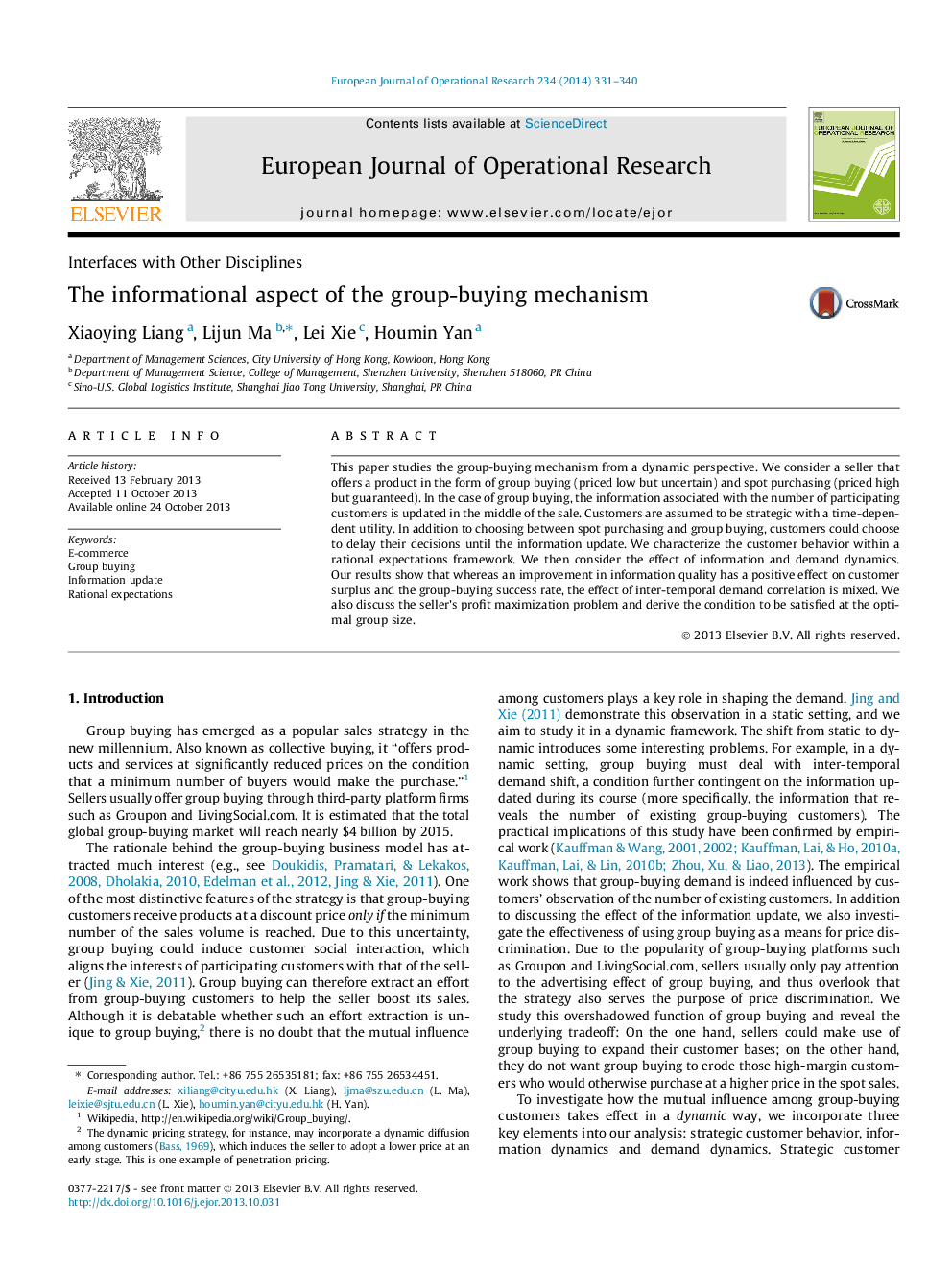| Article ID | Journal | Published Year | Pages | File Type |
|---|---|---|---|---|
| 479888 | European Journal of Operational Research | 2014 | 10 Pages |
•We study the group-buying mechanism from a dynamic perspective in a rational expectations framework.•We characterize the rational expectations equilibrium with customer choice of purchasing time.•We show how information and demand dynamics affect the rational expectations equilibrium.•We derive the condition for the optimal group size to maximize the seller’s profit.
This paper studies the group-buying mechanism from a dynamic perspective. We consider a seller that offers a product in the form of group buying (priced low but uncertain) and spot purchasing (priced high but guaranteed). In the case of group buying, the information associated with the number of participating customers is updated in the middle of the sale. Customers are assumed to be strategic with a time-dependent utility. In addition to choosing between spot purchasing and group buying, customers could choose to delay their decisions until the information update. We characterize the customer behavior within a rational expectations framework. We then consider the effect of information and demand dynamics. Our results show that whereas an improvement in information quality has a positive effect on customer surplus and the group-buying success rate, the effect of inter-temporal demand correlation is mixed. We also discuss the seller’s profit maximization problem and derive the condition to be satisfied at the optimal group size.
